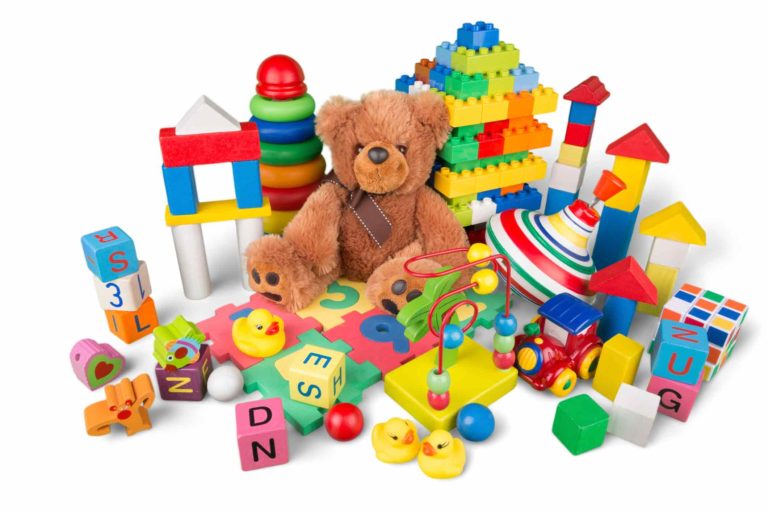
The holiday season is here and that can mean toys, toys, and more toys. While toys can be a wonderful, enriching form of play, it is imperative to ensure that toys are safe before passing them on to a child. Knowing how to understand age appropriateness of different toys and materials for children is important for keeping your kids safe.
Here are a few tips for keeping play safe, healthy, & happy in your household.
Check the Age Rating
This may seem like an obvious point to note, but it is easy to forget. When you’re on a big shopping trip and pick up a cute toy, it may look age appropriate, however, you may want to remember to check the age rating. It is typically written on the packaging in a visible spot in small print. Even if your child is slightly more developed than average, it is wise to avoid or at least carefully monitor any play with toys outside of the recommended age range.
Avoid These Used Toys When Possible
Used bikes, trikes, and scooters often have rust, and may not function safely, as intended. Vintage baby toys are risks for lead-base paint, or an aging varnish that is prone to chipping. Hand-me-down teething toys from big brother or sister are likely just fine, but exercise discernment with any toys older than a few years. Thoroughly inspect for broken or loose parts before buying toys from a thrift shop or yard sale.
Don’t Forget Art Supplies
Art is an incredibly enriching activity for young children. It helps form their creativity and hand-eye coordination. However, you could be putting your child in danger if you are not a cautious consumer in the arts and crafts aisle. All paints, markers, and pencils, and crayons should clearly bare the label “non-toxic.”
Additionally, crayons should specifically bear a marking of “ASTM D-4236” from the American Society for Testing of Materials (ASTM), as they are statistically tempting for young children to put into their mouths, especially for teething, chewing, and eating.
When in Doubt, Consult the Experts
If you have any questions about a toy you’ve purchased for your child, you can research it at the Consumer Product Safety Commission (CPSC) website. Call your pediatrician if you have any questions about the dangers of children’s toys. In the case of a toy-related emergency, call 911.
The information and content on our website should not be used as a substitute for medical treatment or advice from your doctor.

